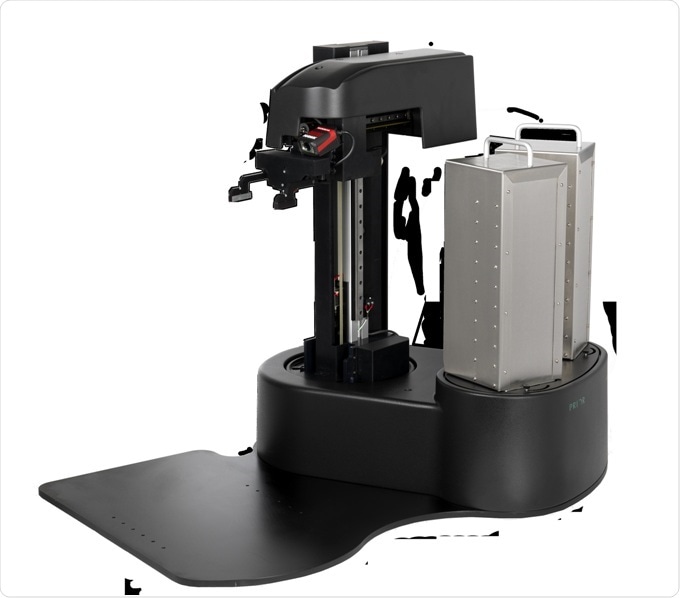Mar 1 2017
Prior Scientific reports how a leading drug discovery and development organisation has been using its PLW20 Well Plate Loader to determine the aqueous solubility of various chemicals over a concentration gradient of buffers.

The PLW20 Well Plate Loader from Prior Scientific is an advanced robotic system for automatic well plate handling. Adaptable to most modern inverted microscopes, the simple, rugged and compact PLW20 together with a Prior ProScan stage combines to provide a system designed specifically for high content screening applications with a capacity of 20 microplates.
During the early stages of the drug development process, many thousands of compounds must be screened in order to identify which are suitable for further investigation and testing. This can be a time consuming process, and most such organisations now use various automated solutions extensively, both to increase the throughput rate and to lower the risk of human error, as well as allowing skilled personnel to be reassigned to other tasks.
The drug discovery and development organisation required evaluation of between 80-160 compounds per week, with each compound requiring 12 microscopic images to be obtained. Software would then review the image and define the compound as ‘soluble’ or ‘insoluble’. Since these evaluations were carried out in microplates, a PLW20 Well Plate Loader from Prior Scientific was purchased and integrated into the system in order to fully automate the solubility testing system.
Traditionally the task of manual loading and unloading of microplates for solubility testing could take up two hours of valuable researcher time. With a load cycle of just 29 seconds, the PLW20 now enables rapid automated microscopic imaging of large numbers of samples, freeing up the researcher to undertake more productive tasks. To safeguard data integrity, the PLW20 also incorporates a barcode reader ensuring that the screening is carried out correctly and that unsuitable compounds do not proceed further in the development and testing cycle.